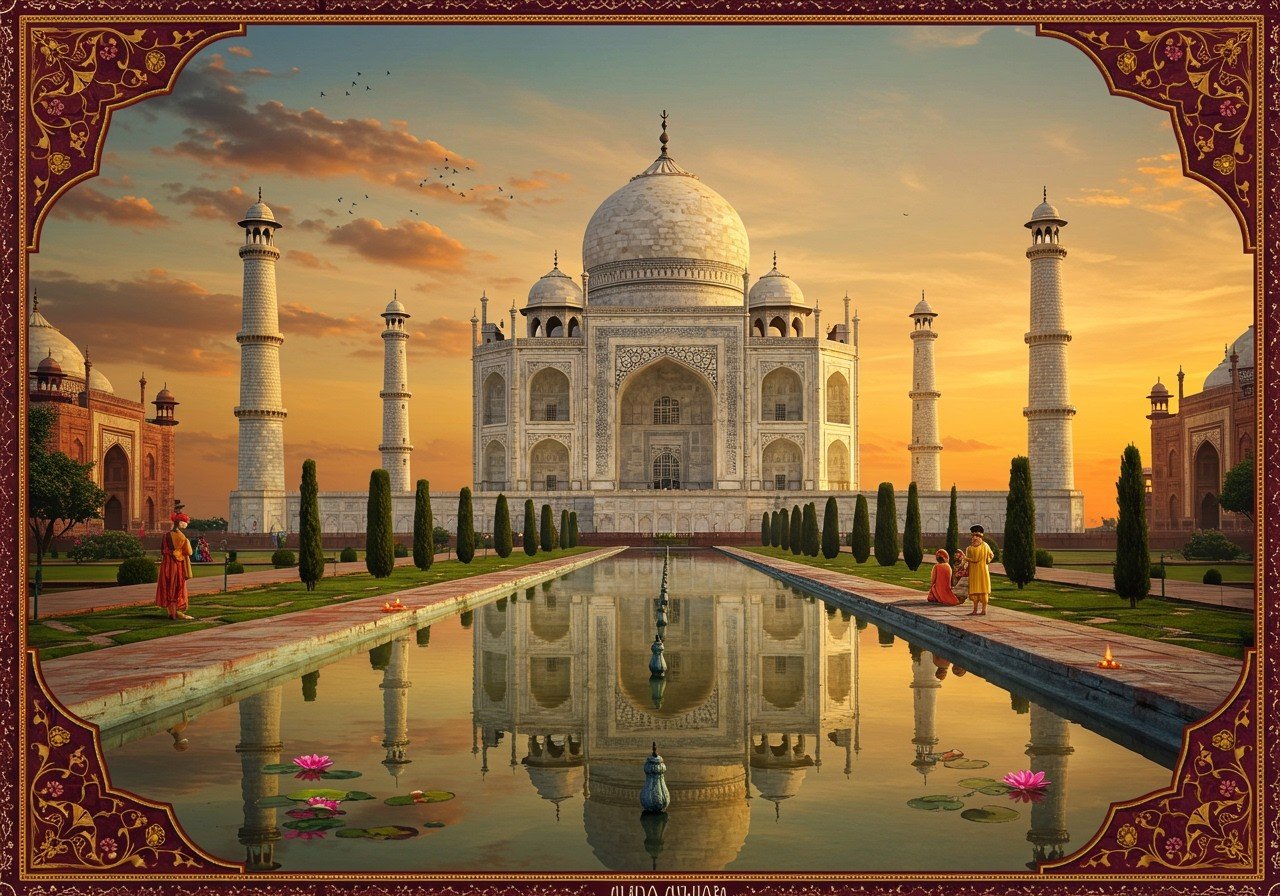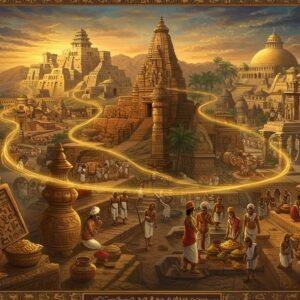
Islam’s presence in India has woven a rich and intricate tapestry into the nation’s cultural fabric. Understanding its historical context allows us to appreciate its profound and lasting impact on Indian society. This article delves into the multifaceted relationship between Islam and India’s diverse traditions, exploring its influence on architecture, arts, cuisine, music, and social customs.
Islam’s Arrival and Expansion in India
Islam’s arrival in India can be traced back to the 7th century CE, primarily through two main avenues:
- Arab Traders: Merchants from the Arabian Peninsula, following established trade routes, brought Islam to India’s coastal regions. Their interactions with local communities led to the gradual spread of Islamic beliefs and customs, particularly in areas like Kerala.
- Conquests and Dynasties: Beginning in the 12th century, the Ghaznavids and Ghurids, through military campaigns, further expanded Islam’s presence into northern India. The establishment of the Delhi Sultanate marked a significant turning point, solidifying Islam’s political and cultural influence across the region.
Cultural Contributions of Islam in India
Architectural Marvels
India’s architectural landscape is adorned with magnificent structures that bear witness to the fusion of Islamic and Indian aesthetics. The iconic Taj Mahal, a testament to Mughal artistry, stands as a symbol of love and architectural brilliance. Other notable examples include the towering Qutub Minar and the majestic Jama Masjid, showcasing the grandeur of Indo-Islamic architecture.
Want to enhance your puja space? Explore exquisite handcrafted items and statues on poojn.in.
Persian Literature and Sufism
Persian literature, brought to India by Muslim scholars and poets, profoundly enriched the literary landscape. Amir Khusrau, a prominent figure, stands out for his contributions to poetry and language. Sufism, a mystical branch of Islam, added a spiritual dimension, establishing shrines and fostering unique traditions that resonated with people from diverse backgrounds.
Culinary Traditions
The arrival of Islam introduced new culinary traditions that blended harmoniously with existing Indian cuisine. Dishes like biryani, a flavorful mix of rice, meat, and spices, and kebabs, became integral parts of Indian gastronomy. This culinary fusion reflects the cultural exchange and integration that characterized the interaction between Islamic and Indian traditions.
Create a serene atmosphere for reflection with premium incense from poojn.in. Our wide selection of fragrances can complement your spiritual practices.
Social and Religious Practices
Islam’s integration into Indian society led to the adaptation and fusion of various social and religious practices.
- Festivals: Islamic festivals like Eid-ul-Fitr and Eid-ul-Adha are widely celebrated, often alongside traditional Hindu festivals, showcasing the spirit of coexistence and shared cultural experiences.
- Education and Law: Madrasas, traditional Islamic educational institutions, play a vital role in imparting religious and cultural knowledge. Islamic jurisprudence has also influenced legal systems, adding to the diversity of legal traditions in India.
Music and Dance: A Harmonious Blend
Islamic influences are evident in various forms of Indian music and dance:
- Hindustani Classical Music: Muslim musicians made significant contributions to the development of Hindustani classical music. The integration of Persian and Arabic musical elements created a unique and rich musical tradition.
- Dance and Sufi Music: Dance forms like Kathak bear the imprint of Islamic influences. Sufi music, with its devotional and mystical character, and qawwali, a form of Sufi devotional singing, have become integral parts of India’s cultural heritage.
Contemporary Islamic Culture in India
Indian Muslims continue to make significant contributions to various fields, enriching the nation’s cultural tapestry. Their involvement in arts, literature, and cinema reflects the dynamism and creativity of the community. Islamic institutions play a crucial role in supporting community development and fostering interfaith dialogue, promoting harmony and understanding between different religious groups.
Celebrating India’s Diverse Heritage
Islam’s journey in India is a testament to the country’s capacity to embrace diversity and foster cultural exchange. Recognizing and appreciating the contributions of Islam enriches our understanding of India’s multifaceted heritage. By celebrating these diverse traditions, we strengthen the bonds of unity and mutual respect that make India a vibrant mosaic of cultures and beliefs.


